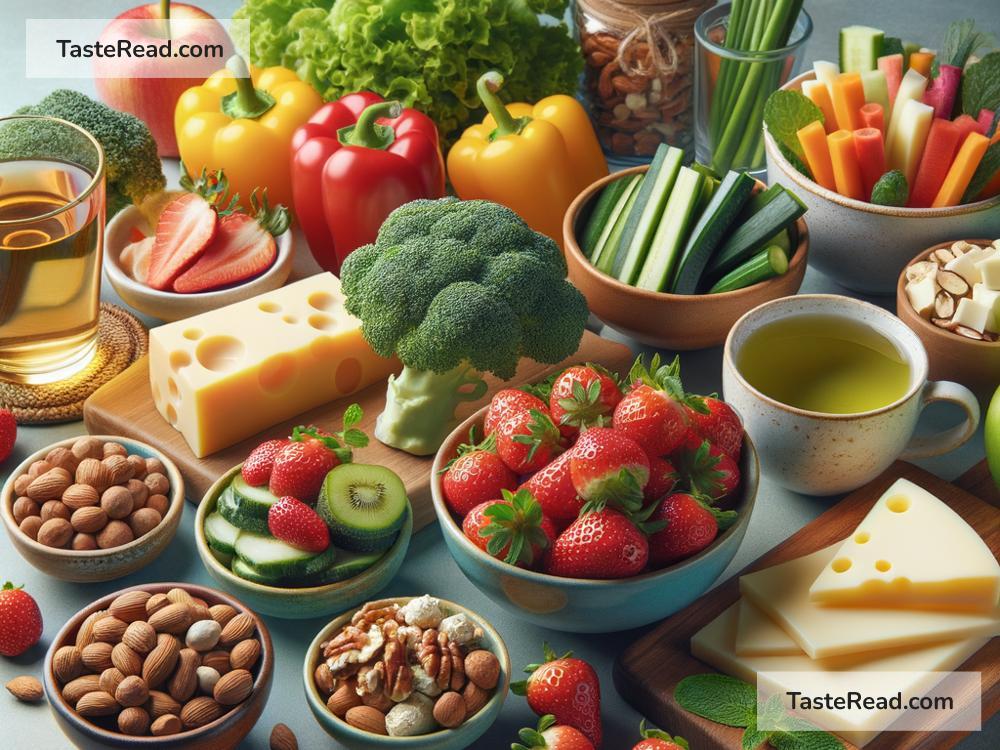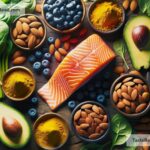Foods That Lower the Risk of Cavities
Cavities are a common problem that many people face. They happen when bacteria in your mouth produce acid that breaks down the enamel, the hard surface of your teeth. If left unchecked, cavities can lead to pain, infections, and even tooth loss. While brushing your teeth, flossing, and visiting your dentist regularly are the best ways to prevent cavities, did you know that what you eat also plays a big role?
Some foods can naturally help protect your teeth and reduce your risk of cavities. In this article, we will explore simple, everyday foods that are good for your teeth and can keep cavities at bay.
1. Crunchy Fruits and Vegetables
Ever wonder why your dentist tells you to snack on apples and carrots? Crunchy fruits and vegetables like apples, carrots, celery, and cucumbers are excellent for your teeth. These foods are high in fiber and require a lot of chewing, which stimulates saliva production. Saliva is important because it washes away food particles and harmful bacteria. It also contains minerals that help rebuild tooth enamel.
Additionally, crunchy fruits and vegetables can act as natural scrubbing tools, gently cleaning your teeth as you chew. So next time you’re looking for a snack, skip the chips and reach for an apple or a carrot stick instead.
2. Dairy Products
Milk, cheese, yogurt, and other dairy products are great for your teeth because they are rich in calcium and phosphate. These minerals strengthen your teeth and help repair damaged enamel. Cheese is especially beneficial because it increases saliva production and helps balance the pH levels in your mouth, reducing acidity.
For an added cavity-fighting boost, choose unsweetened or sugar-free versions of yogurt and milk. Many flavored yogurts and drinks contain added sugars, which can feed harmful bacteria and lead to cavities.
3. Nuts and Seeds
Nuts and seeds, such as almonds, cashews, and sesame seeds, are packed with vitamins and minerals that promote healthy teeth. Almonds and cashews are particularly helpful because they contain calcium, which strengthens teeth, and they stimulate saliva production. Sesame seeds help remove plaque and can even remineralize your tooth enamel.
Nuts and seeds are also low in sugar, making them an ideal snack for keeping cavities away. A handful of mixed nuts can satisfy your hunger while giving your teeth some extra protection.
4. Leafy Greens
Leafy greens like spinach, kale, and lettuce are superfoods for your teeth. They are high in calcium, vitamins, and minerals that strengthen teeth and gums. These greens are also rich in folic acid, which helps prevent gum disease.
Adding leafy greens to your meals is easy. Toss them into a salad, blend them into a smoothie, or stir them into a soup. The more greens you eat, the healthier your teeth and gums will be.
5. Sugar-Free Gum
Chewing sugar-free gum can be an excellent way to keep your mouth healthy between meals. Gum stimulates saliva production, washing away food particles and bacteria. Look for gums that contain xylitol, a natural sugar substitute that can help fight cavity-causing bacteria.
Remember to avoid gums or candies sweetened with sugar, as they can do more harm than good. Always read the label to check for xylitol or other sugar-free ingredients.
6. Green and Black Tea
Many people enjoy a warm cup of tea, but did you know it can be good for your teeth, too? Both green and black tea contain compounds called polyphenols, which help reduce bacteria and plaque in your mouth. These teas also contain fluoride—a mineral that strengthens tooth enamel and fights cavities.
For the best results, skip the sugar or honey in your tea and drink it plain. Sugary teas can undo the cavity-fighting benefits.
7. Foods Rich in Vitamin C
Vitamin C isn’t just good for your immune system; it’s also important for keeping your gums healthy. This vitamin strengthens blood vessels and connective tissue, helping your gums stay firm and healthy. Healthy gums are less likely to develop infections that can lead to cavities and tooth loss.
Oranges, strawberries, kiwi, and red bell peppers are all excellent sources of vitamin C. Eating these foods regularly can make a big difference in your oral health.
8. Whole Grains
Whole grains like whole wheat bread, brown rice, and oatmeal are healthier for your teeth compared to refined grains found in white bread and sugary snacks. Whole grains contain complex carbohydrates, which don’t break down into sugar as quickly as refined carbohydrates do. This means less food for harmful bacteria to grow on.
Whole grains also contain magnesium, which is great for tooth enamel and helps your body absorb calcium better.
Foods to Avoid
While eating the right foods can reduce your risk of cavities, there are some foods you should avoid or limit. Sugary snacks, sodas, sticky candy, and starchy refined carbs (like chips and white bread) can feed harmful bacteria, leading to tooth decay. Avoid frequent snacking and drink plenty of water to keep your mouth clean and healthy.
Final Thoughts
Protecting your teeth is about more than just brushing and flossing—it starts with the foods you eat every day. Crunchy fruits and vegetables, dairy products, nuts and seeds, leafy greens, and whole grains are all great choices for cavity prevention. Try to include these foods in your diet and limit sugary treats to keep your smile healthy and bright.
By making small changes to your eating habits, you can safeguard your teeth and avoid painful dental problems in the future. Remember, you don’t have to sacrifice taste for healthy teeth—many cavity-fighting foods are delicious and easy to enjoy!


